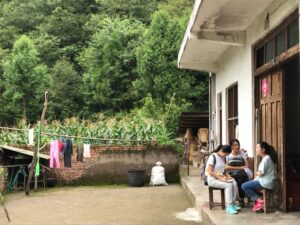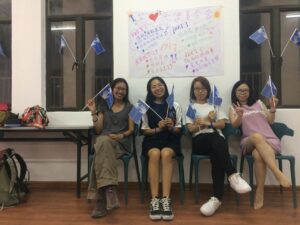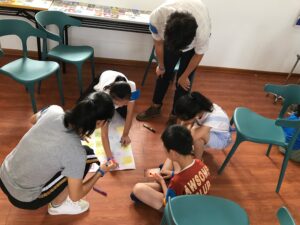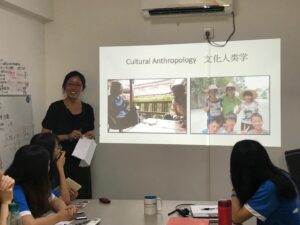Engaged Anthropology Grant: Chun-Yi Sum

While a doctoral student at Boston University Chun-Yi Sum received a Dissertation Fieldwork Grant in 2011 to aid research on “The New Vanguard of Civil Society: Morality and Civic Consciousness among College Students in China”, supervised by Dr. Robert P. Weller. In 2017 Dr. Sum was awarded an Engaged Anthropology Grant which gave her the opportunity to return to the field the following year to carry out her project, “Exploring Better Practices of Engaged Volunteerism in China”.
What makes effective social interventions? How should civic actors channel their passion into making sustainable contributions? In my dissertation research about student volunteerism and extracurricular activities in Chinese universities, I asked whether and how student organizations might invigorate China’s civil society, and how participatory experience might transform young people’s moral worldviews. In the summer of 2018, Wenner-Gren’s Engaged Anthropology Grant funded my month-long revisit back to my dissertation field site. I organized workshops and lectures about culturally-informed interventions, and discussed with participants ways to develop “pretty good practices” of engaged volunteerism. I appreciate this opportunity to give back to civic groups that have generously shared their time and cultural knowledge with me when I was still a doctoral student. These activities also helped to promote the application of anthropological methods and humanistic sensibility among civic actors in China.

The primary audiences of my engagement project are student volunteers and staff members of two civic organizations that serve school children in impoverished rural communities in China. First, I joined a student group in a summer field trip to visit scholarship recipients whom they sponsored. Student volunteers wanted to determine whether to renew these scholarships in the upcoming academic year: how had the scholarships improved their recipients’ academic performances? Had the recipients’ families experienced significant changes in financial circumstances that might qualify them for or disqualify them from further sponsorship? Volunteers asked scholarship recipients a list of questions about household income and academic grades. They filled out a questionnaire after each home visit.

Besides teaching student volunteers interviewing techniques to facilitate their tasks, I helped them collect additional information that could be used for program evaluation and for updating the questionnaire. In debriefing meetings that I organized after each day’s home visits, I asked students to reflect upon their observations and impressions about the families they interviewed. I encouraged students to talk also to teachers and neighbors to understand more holistically their service site. More importantly, I challenged student volunteers to critically evaluate the strengths and weaknesses of their interventions, and to formulate a protocol about how to document their field experiences for sharing with volunteers in the future.

The second group I worked with aimed similarly at helping marginalized children to perform better at school, but with a different approach. This group recruited university students to mentor rural children using letter writing as a medium. My second engaged activity was to accompany letter-writing students on a field trip to meet with their pen pals for the first time. We planned two days of activities for twelve pairs of student volunteers and children to learn more about each other. In the evenings, I met with staff members of the group to brainstorm about new ideas to motivate rural children to study. We also talked about ways to improve participants’ volunteering experiences. A week after the field trip, I gave a presentation at the organization’s headquarter to facilitate a conversation about program development and future projects.

In addition, the Engaged Anthropology Grant supported three public lectures in Guangzhou City before and after the two summer field trips. In these presentations, I introduced my working book manuscript about extracurricular activities in Chinese universities, as well as other publication plans based on my field research in the region since 2010. I also talked about the importance of incorporating cultural awareness and research-based evaluative protocol in responsible volunteering practices. These lectures attracted a total audience of about sixty, many of whom were volunteers, social workers, and past and present participants in student organizations in which I conducted my dissertation research in 2011 and 2012. I am glad to have the opportunity to connect with new and old friends in the field, and to explore with Chinese civic actors the synergy between anthropology and social initiatives.